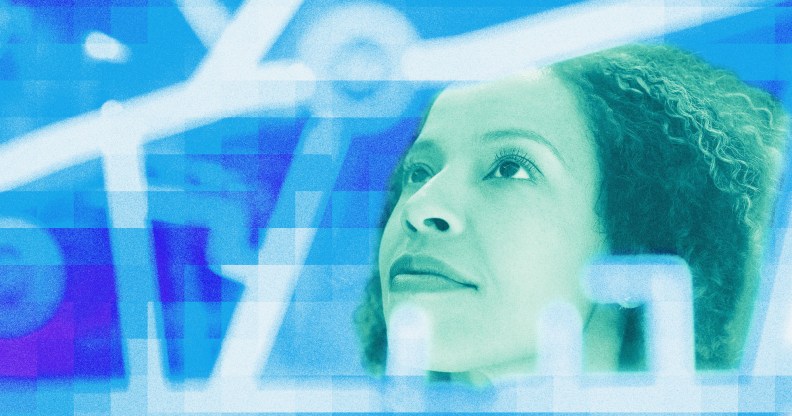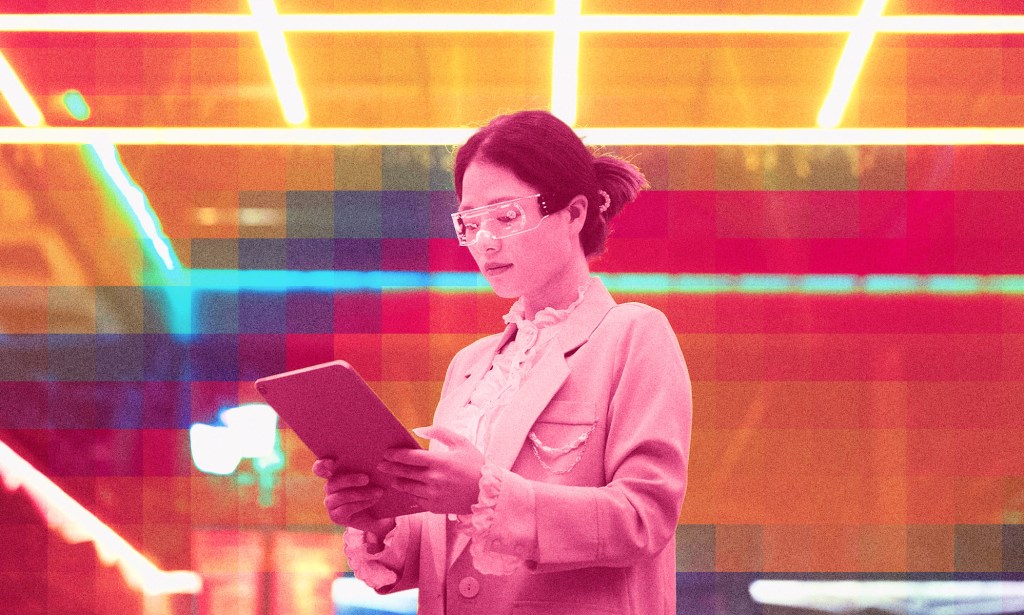AI might be coming for your career, but it could lead to unexpected benefits for LGBTQ job-seekers

AI is quickly becoming a part of everyday life. (Getty Images)
Artificial intelligence (AI) is now in everyday use in industries across the world, and it might even take your job.
AI has gone from a sci-fi movie trope to a reality more rapidly than many had hoped. Microsoft has unveiled a new version of their search engine Bing, powered by the popular ChatGPT technology, and Google is also investing heavily in AI. Many have changed their profile pictures on social media with AI images generated by apps like Lensa and Wonder.
Given our daily use of chatbots and the billions being invested in this technology, it’s no surprise that AI is already impacting our careers. From what type of work we do to how we find work, artificial intelligence is disrupting our approach to employment. Young job-seekers and established professionals will need to adapt quickly and understand the potential benefits and drawbacks of artificial intelligence.
Will AI take my job?
After the allure of AI-generated profile pics wears off, some may start to panic and wonder if the robots are coming for their jobs. Recent data from Tidio indicates that nearly 69% of recent college graduates believe that AI will take their jobs or make them irrelevant in a few years’ time. The truth is that depending on the job, AI may indeed replace you.
Research done by Beyond listed some of the jobs that could be taken over by artificial intelligence. Customer service executives, cashiers and accountants all have a high likelihood of being completely replaced by AI in the coming years. On the flip side, education, computer science and engineering careers will be impacted by AI, but will continue to be facilitated by humans.
So while AI may take some jobs, many believe that advances in machine learning will actually lead to more jobs. Kavita Kapoor, Chair of Pride at BCS, The Chartered Institute for IT tells PinkNews: “Most people fear that jobs may become obsolete due to automation, but like technologies of the past I believe that new opportunities will be created.”
How will AI impact finding a job?
AI has already been used quietly in the background for some time now. Job search platforms LinkedIn, Monster and Indeed have been rolling out AI algorithms to make it easier for human recruiters to find possible candidates. LinkedIn specifically has a powerful AI-personalisation tool that matches users to particular jobs.
For larger companies that often get hundreds of CVs for a role, AI can help streamline the process and eliminate errors that can happen when scanned by human eyes.
Dr Tetiana Hill, a Chartered Occupational Psychologist and senior research fellow at the Hertfordshire Business School, University of Hertfordshire, conducts research in human-technology interaction and wellbeing and believes that while there are benefits to AI within recruiting, there are still flaws.
“It [AI] may lead to biases and discrimination due to some algorithmic biases in AI,” says Dr Hill.
“It is worth pointing out that despite all of the advances in AI, it still cannot replace human recruiters due to the lack of cognition and flexibility in decision-making a human possesses.”
For job-seekers, there are dozens of AI-generated CV-building platforms available, and using it as a foundation could lead to more job offers. A study from MIT that experimented with job seekers using AI found that those who used it in their CV process were more likely to get a job offer than those that didn’t.
While it may be a good idea to use AI to start the foundation of your CV, always make sure to go over it and add more context that AI isn’t yet able to deliver.

AI and the LGBTQ+ community
For the LGBTQ+ community, there is a lot of promise in artificial intelligence cultivating a more inclusive workplace. Dr Hill believes that “in theory, AI could help with removing bias from recruitment, which would, in turn, assist with promoting workplace diversity and inclusion – and certainly have a positive impact on LGBTQ+ candidates.”
Joseph Williams, co-founder and CEO of Clu, thinks that artificial intelligence can also help LGBTQ+ people erase their own perception bias. “The bias people will have against themselves and what they’re capable of in their own careers, enabling people to be matched to careers based on what they can do and not what they think they can do.”
“If members [of] the LGBTQ+ community feel they can’t put themselves forward for a promotion or join a new company based on their identity, this will hold them back from progressing in their career or being in the career they truly want.”
The promise of AI promoting truly inclusive workplaces is all and well, but bias could still occur within AI algorithms. As Dr Hill makes clear: “All the tools/algorithms are customised by human professionals so in order to implement a tool that would be 100% fair and unbiased, professionals working on/with these tools have to be as fair and unbiased as possible too, which is still a big challenge these days.”
How did this story make you feel?

